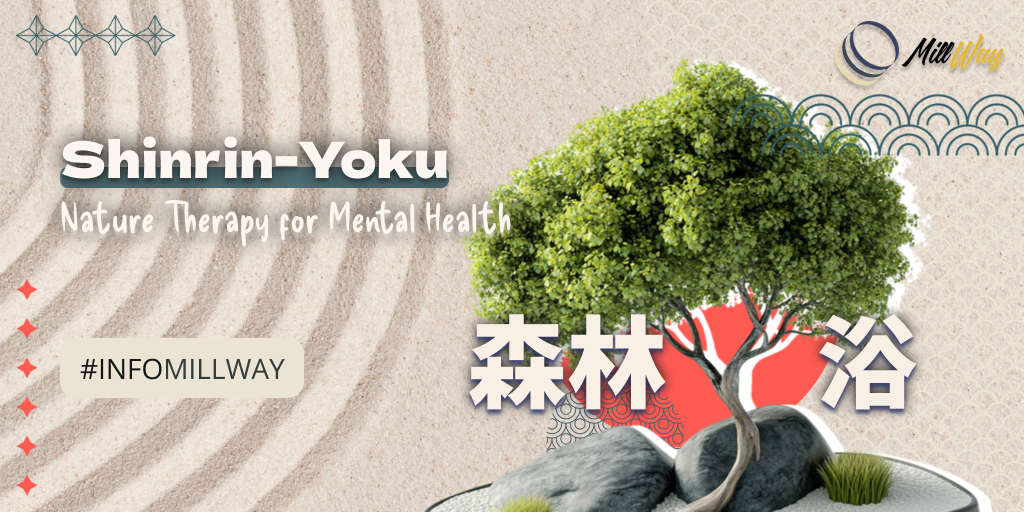
In today's fast-paced and stressful world, many people experience stress and mental exhaustion. One natural and effective way to cope with this is through Shinrin-Yoku, a practice from Japan known as "forest bathing".
Shinrin-Yoku is not about intense physical activities like hiking, but rather about leisurely enjoying the forest atmosphere, absorbing the energy of nature, and experiencing the calmness provided by the green environment. How can Shinrin-Yoku help mental health? Let’s discuss it in more detail.
Shinrin-Yoku comes from the Japanese language, where "Shinrin (森林)" means forest and "Yoku (浴)" means bathing. Literally, the term means "forest bathing," but not in the literal sense. This concept was developed in Japan in the 1980s as part of a health therapy to combat the negative effects of urbanization. Shinrin-Yoku invites us to walk slowly in the forest, absorb the aroma of the trees, listen to the sounds of nature, and feel the calming breeze. The main goal of Shinrin-Yoku is to reconnect the body and mind with nature, reduce stress, and enhance mental well-being.
Various studies show that spending time in nature can improve both mental and physical health. Here are some of the main benefits of Shinrin-Yoku:
Exposure to natural environments has been shown to lower cortisol levels, the stress hormone in the body. Research indicates that people who regularly spend time in the forest have lower stress levels compared to those living in urban areas.
Spending time in nature can enhance cognitive ability and focus, especially for those who often experience mental fatigue. Shinrin-Yoku helps rest the brain from the overstimulation often encountered in urban environments.
A study in Japan found that people who spent time in the forest experienced improved mood and felt happier. This is because nature helps increase the production of serotonin and dopamine, which are essential for happiness.
The fresh air in the forest contains phytonutrients from the trees that can help lower blood pressure and improve the immune system.
Being in a green environment helps regulate the circadian rhythm, which plays a role in sleep cycles. The fresh air and tranquility of nature make sleep deeper and more restful.
You don't need to travel far to a dense forest. Shinrin-Yoku can be done in city parks, gardens, or other green areas. Here are simple steps to enjoy this natural therapy:
Choose a location with trees, such as a forest, city park, or garden. A place with a peaceful atmosphere and minimal noise is preferred.
Shinrin-Yoku is not about exercise or hiking. The goal is to enjoy each step mindfully. Walk slowly, observe your surroundings, and don't rush.
To fully benefit from Shinrin-Yoku, avoid using your phone or other electronic devices. Let your body and mind truly connect with nature.
If you want to experience a deeper effect, try sitting quietly for a few minutes, taking deep breaths, and enjoying the tranquility of the forest.
Studies show that 30-60 minutes spent in nature is enough to provide benefits for mental health. If possible, practice it regularly every week.
